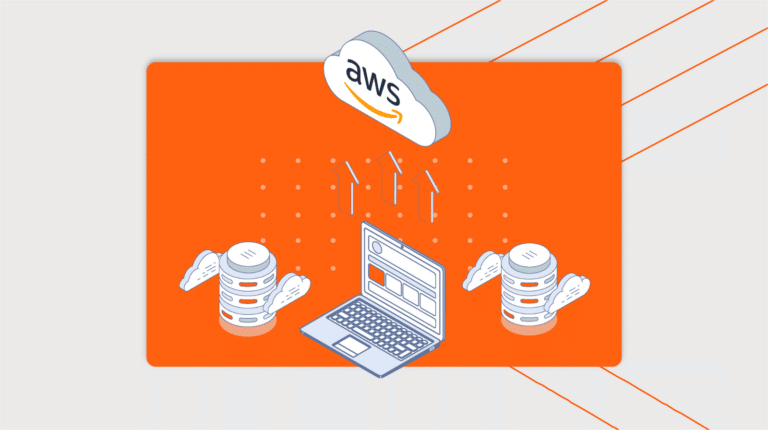Introduction
Amazon Web Services (AWS) is a cloud computing platform provided by Amazon. It offers a wide range of services including computing power, storage, and databases, as well as tools for analytics, machine learning, and artificial intelligence. AWS has become an integral part of the tech industry, providing scalable and cost-effective solutions for businesses of all sizes.
The importance of AWS in the tech industry cannot be overstated. It has revolutionized the way businesses operate by providing them with the ability to scale their infrastructure on-demand, without the need for upfront investment in hardware. This has leveled the playing field for startups and small businesses, allowing them to compete with larger organizations on a global scale. Additionally, AWS has enabled businesses to innovate faster by providing them with access to cutting-edge technologies such as machine learning and artificial intelligence.
Getting Started with AWS
To get started with AWS, you first need to sign up for an AWS account. This can be done by visiting the AWS website and following the sign-up process. Once you have signed up, you can create an EC2 instance, which is a virtual server in the cloud. This can be done through the AWS Management Console or using the AWS Command Line Interface (CLI).
After creating an EC2 instance, you can launch a web application on it. This can be done by installing a web server such as Apache or Nginx on the instance and deploying your application code. You can also use services like AWS Elastic Beanstalk or AWS Lambda to simplify the deployment process.
AWS Services
AWS offers a wide range of services that cater to different needs and use cases. Some of the most popular services include:
– Amazon S3: A scalable object storage service that allows you to store and retrieve large amounts of data.
– AWS Lambda: A serverless computing service that allows you to run your code without provisioning or managing servers.
– Amazon RDS: A managed relational database service that makes it easy to set up, operate, and scale a relational database in the cloud.
Each of these services has its own unique features and use cases. For example, Amazon S3 is commonly used for storing and serving static assets such as images and videos, while AWS Lambda is often used for running serverless functions in response to events.
AWS Security
Security is a top priority for AWS, and they provide a number of tools and best practices to help you secure your AWS account and data. Some best practices for securing your AWS account include:
– Enabling multi-factor authentication (MFA) for all users.
– Regularly rotating access keys and passwords.
– Restricting access to your AWS resources using IAM roles and policies.
– Monitoring your account for suspicious activity using AWS CloudTrail and Amazon GuardDuty.
In addition to securing your AWS account, it is also important to secure your data in AWS. This can be done by encrypting your data at rest and in transit, using services such as AWS Key Management Service (KMS) and AWS Certificate Manager (ACM). It is also important to regularly backup your data and test your disaster recovery plan to ensure that you can recover from any potential data loss or downtime.
AWS Pricing
AWS offers a pay-as-you-go pricing model, which means that you only pay for the resources you use. The pricing for each service is based on factors such as the type and size of the resource, the region in which it is deployed, and the duration of usage.
To optimize costs and save money on AWS, there are several tips you can follow. These include:
– Choosing the right instance type and size for your workload.
– Using reserved instances or savings plans to get discounted pricing for long-term usage.
– Monitoring your resource usage using services like AWS Cost Explorer and AWS Budgets.
– Using auto-scaling to automatically adjust your resource capacity based on demand.
AWS Certification
Getting certified in AWS can provide numerous benefits for your career. It demonstrates your expertise in AWS technologies and can help you stand out from other candidates in the job market. Additionally, AWS certifications are recognized and valued by employers worldwide.
To prepare for AWS certification exams, it is recommended to start by gaining hands-on experience with AWS services. This can be done by working on real-world projects or using the AWS Free Tier to experiment with different services. There are also numerous online resources available, such as AWS documentation, whitepapers, and training courses, that can help you prepare for the exams.
AWS Case Studies
There are many real-life examples of companies that have successfully used AWS to achieve their goals. For example, Netflix uses AWS to stream billions of hours of content to millions of customers worldwide. Airbnb uses AWS to scale their infrastructure and handle peak demand during major events. And NASA uses AWS to process and analyze large amounts of data from space missions.
These case studies highlight the scalability, reliability, and cost-effectiveness of AWS. They also demonstrate how AWS can help businesses innovate and achieve their goals.
AWS Community
The AWS community is a vibrant and active community of developers, architects, and enthusiasts who share their knowledge and experiences with each other. There are numerous ways to connect with other AWS users, such as attending AWS events and meetups, participating in online forums and communities, and following AWS blogs and social media channels.
Being part of the AWS community has several benefits. It provides opportunities for networking and collaboration, allows you to stay up-to-date with the latest trends and technologies in the industry, and gives you access to resources and support from experienced professionals.
AWS Roadmap
AWS is constantly evolving and adding new features and services to its platform. Some of the upcoming features include:
– Amazon Aurora Serverless v2: A new version of the serverless database service that offers improved performance and scalability.
– AWS Outposts: A fully managed service that extends AWS infrastructure to on-premises data centers.
– AWS App Runner: A fully managed service that makes it easy to build, deploy, and scale containerized applications.
These new features can benefit users by providing them with more options and flexibility in building and deploying their applications.
Conclusion
In conclusion, AWS has become an essential part of the tech industry, providing scalable and cost-effective solutions for businesses of all sizes. It offers a wide range of services that cater to different needs and use cases, and provides tools and best practices for securing your account and data. AWS certifications can help advance your career, and being part of the AWS community can provide numerous benefits. With its constantly evolving roadmap, AWS continues to innovate and provide new features and services to its users. Whether you are a startup, a small business, or a large enterprise, AWS can help improve your career and achieve your goals.
If you’re looking for unlimited access to AWS tutorials, you’ll definitely want to check out the article “AWS Web Services: The Ultimate Solution for Scalability and Flexibility” on Cloudfront.ai. This comprehensive guide explores how AWS can revolutionize your cloud infrastructure with its scalable and secure solutions. Whether you’re a beginner or an experienced user, this article will provide valuable insights and tips to help you make the most of AWS. So, don’t miss out on this opportunity to enhance your knowledge and skills in AWS by reading the article here.

